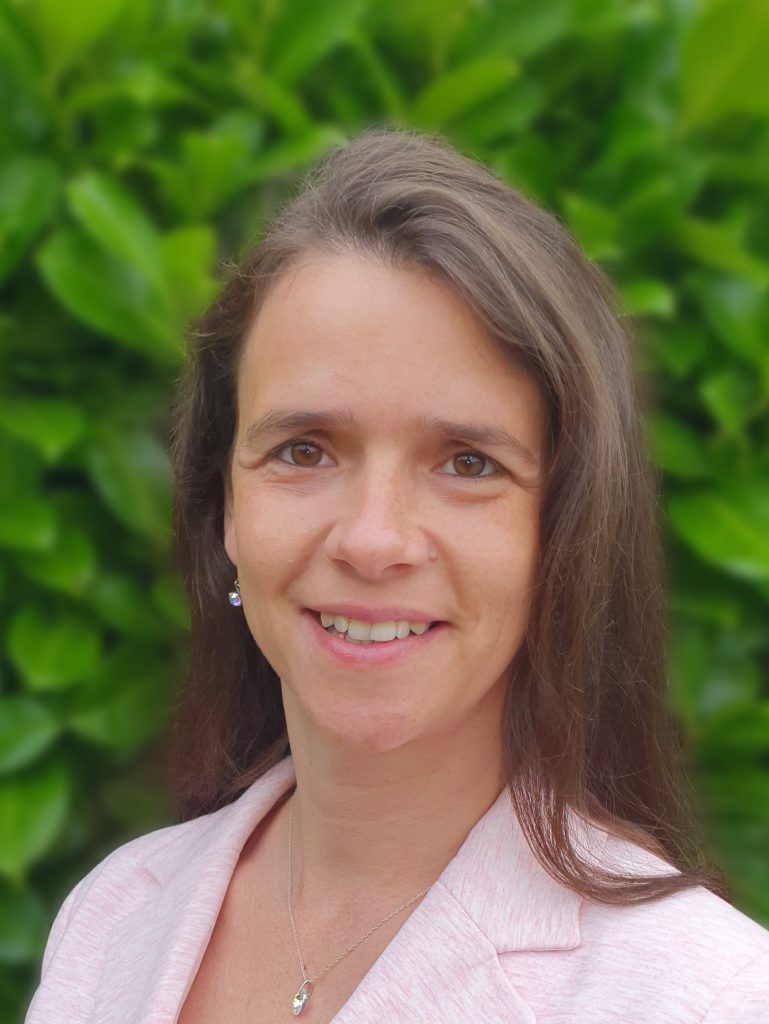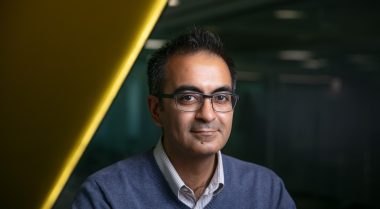Claudia Lindner: Inspiring inclusion for women in health data science
8 March 2024 | Author: Dr Claudia Lindner, Senior Research Fellow and Sir Henry Dale Fellow in Translational Medical Imaging, The University of Manchester
Dr Claudia Lindner provides insight into her medical imaging data science career and the importance of creating a working environment where women feel valued and respected.
 Dr Claudia Lindner is a Sir Henry Dale Fellow and Senior Research Fellow at The University of Manchester. She has over 20 years of international experience in the development and application of computational methods. Claudia also won the Best Lightning Talk award at our HDR UK Conference this week after presenting her work on ‘Using AI to enhance efficiency and equality of hip surveillance in children with cerebral palsy’ in only four minutes, as voted by the audience.
Dr Claudia Lindner is a Sir Henry Dale Fellow and Senior Research Fellow at The University of Manchester. She has over 20 years of international experience in the development and application of computational methods. Claudia also won the Best Lightning Talk award at our HDR UK Conference this week after presenting her work on ‘Using AI to enhance efficiency and equality of hip surveillance in children with cerebral palsy’ in only four minutes, as voted by the audience.
To celebrate International Women’s Day, we chatted with Claudia about her career and the ways in which she believes we can inspire inclusion for women in health data science.
Can you provide an overview of your career journey so far?
I grew up and went to school in Germany, where I went on to do an apprenticeship as a software engineer. I then started studying computer science at university while continuing to work for the company, which was helpful to gain hands-on experience. I completed both my Bachelor’s and Master’s degree in computer science with my dissertation projects in medical image analysis. Following this, I moved to Australia, where I worked as an IT project manager for Queensland Health. I returned to Germany to work as a Research Assistant in theoretical computer science but realised my heart was with medical imaging, which brought me to the UK.
I completed my PhD at The University of Manchester and have been in Manchester ever since! My PhD combined medical imaging with genetic analysis, and I enjoyed this interdisciplinary approach of exploring various areas. I was a postdoc for a couple of years, received an HDR UK fellowship, became a lecturer for a while and now I’m a Sir Henry Dale Fellow. My research focus throughout my time here in Manchester has always been on medical imaging. Over the last few years, I have also developed a keen interest in how we can improve the translation of healthcare technologies into real-world applications.
Why did you pursue a career in computing science and what about the world of medical imaging drew you in?
I always liked maths and became interested in a computer science career towards the end of my A-levels, especially because this sector was beginning to blossom and there seemed to be an exciting future in this space.
Medical imaging really attracted me because it’s very applied and you can see a direct pathway for impact. It excites me to work alongside clinicians and healthcare staff and to see the applications of what I do. Feeling like I’m making a positive impact and changing things for the better is my main motivation.
What is the most rewarding part of your work?
Seeing the things that I’m doing are valuable and are used beyond papers. For example, in the academic space, I’ve developed a tool that is licensed to other researchers, so it’s rewarding for me to see researchers across the world use my tool to help them in their studies. Beyond academia, it’s really exciting to see that the tools I’ve developed are being used in the real world.
In your experience, what do you believe is one of the biggest challenges that women in science or related fields face?
It’s a shame to say but I think, wanting to have a family. Even when pursuing opportunities before having a family, there can be situations where organisations are not eager to employ women in case they have a career break at some point. Unfortunately, this challenge is still an issue.
Having a family often means you need a bit more flexibility or the ability to go part-time, which requires organisations to be accommodating. I think academia is a bit better at providing that flexibility than industry but in academia, there seems to be a permanent pressure for outputs and success, often on short-term contracts. If you have a family, it may take you longer to achieve this due to other commitments. For example, you may not be able to attend key events in the evening or travel to a really important conference at the other end of the world. Also, short-term contracts are a real worry, and I have seen multiple cases where really talented women wanting to start, or having started, a family left academia for that reason.
How do you think we can make the sector more inclusive of women and inspire more women to pursue a career in this field?
Increasing flexibility would really help, especially when women may reach that stage of looking to start a family. I also think it would help to highlight flexible working opportunities that are available. For example, many data science roles can be more accommodating than other areas – especially post-pandemic – because you can complete a lot of the work from home. It would be helpful to accommodate and highlight these opportunities where you don’t necessarily have to physically be at a particular venue, at a particular time. It’s a big selling point if the employer is accommodating of your other commitments.
Role models are also very important. We can inspire inclusion by spotlighting women who are successful or who have had similar experiences at any stage of their journey; from researchers to senior leadership positions. We should also be providing opportunities for women to connect, share stories and experiences, and offer guidance when it comes to dealing with certain situations or challenges that women sometimes face. I think it’s beneficial to hear other women say, “That’s happened to me too!” and to have a platform where we can share insights on how to best handle these situations.
Who inspires you?
I don’t have just one stand-out role model. I’m always picking up inspirational snippets and sentences from different people. Even though I don’t have a specific person in mind, I’m always reflecting on what people say and I think about how this may apply to me. I believe you can have several different role models that you look up to at different points of your life, including while you progress through your career. It’s important to draw from people who’ve got more experience in your particular area of interest.
I also believe it’s important to have a mentor, or let’s say at least one mentor. It’s really helpful to get those insights, a fresh perspective and support. I do understand though that, if not part of a formal mentorship programme, it can be daunting to think about approaching someone more senior and to ask them about being a mentor. However, in my experience everyone has always been really helpful and supportive. So, I would like to encourage others to just give it a go.
What would be your advice for the next generation of women, who might be considering a career in this field?
It’s really rewarding and if you want to do something in this field, you should do it. Don’t let anyone or anything stop you!
It’s like that saying; if a toddler stopped walking every time they fell down, humans would have never walked. Keep going! Yes, there are challenges and you may need to take time to reflect but never stop trying. If this career is something that you’re passionate about, there shouldn’t be any reason why you shouldn’t be pursuing it.
When you’re not working, what do you enjoy doing?
I love spending time with my family and exercising when I can. Running helps me to relax and take my mind off of things.



